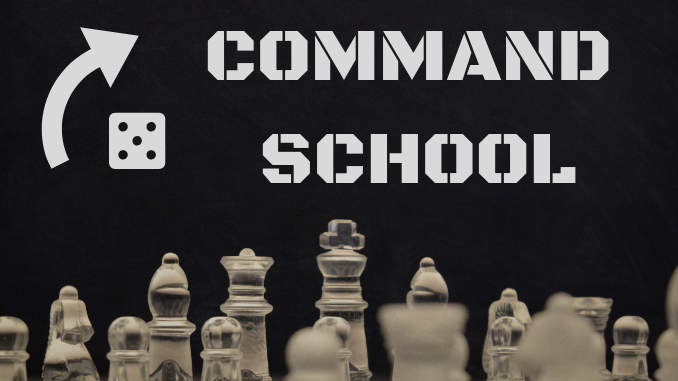
“All men can see these tactics whereby I conquer, but what none can see is the strategy out of which victory is evolved.” – Sun Tzu, Chapter VI: Empty and Full, The Art of War
Well, Gamer Nation, I’m back. Although I’ve bid farewell to my previous series devoted to the Star Wars RPG, the HoloNet Uplink, I just couldn’t stand the thought of not blasting my opinion out on a weekly basis. This post marks the start of a new series devoted to applying strategy and tactics to the world of tabletop gaming. Some entries, like this one, will tackle broad concepts which can apply across a number of games. Others will focus on the details of a single game; for example, providing tips to the Imperial player in Star Wars: Rebellion cribbed from counter-insurgency doctrine. I hope all will educate and entertain.
It would not be a blog post about strategy and tactics without the ceremonial Sun Tzu quote. Fun fact, the more popular “Strategy without tactics is the slowest route to victory. Tactics without strategy is the noise before defeat.” is not in any version of The Art of War that I, or WikiQuote, knows of. Regardless, today’s topic is the vital difference between strategy and tactics.
Strategy vs Tactics
I start with this topic for two reasons. The first is selfish, as it is a pet peeve of mine when these terms are used interchangeably. The second, and a much more important reason, is that by understanding the difference and the interplay between them, one can think much clearer about how to go about securing victory. Let’s start with definitions.
A number of different definitions can be found for strategy and tactics. If you feel up to some extra reading there are some excellent definitions offered by historians, military strategists, and since the 1980s or so from business leaders. I’ll pick just one for each concept, but broadly these definitions are variations on a theme.
Strategy, as broadly defined by the American strategist and naval officer J.C. Wylie, is “a plan of action designed in order to achieve some end; a purpose together with a system of measures for its accomplishment.” An actor seeks to achieve some desired end state, and thus determines what series of means must be employed to reach that end state. This is the big picture and is referred to as the strategic level.
Tactics, by contrast, occur at a much smaller scale. Tactics is the employment of techniques to achieve a specific task. In military terms, this might be expressed as the art of winning battles and is referred to as the tactical level. But as we know from many cases in history, just because you win the battle does not mean you win the war. The best tactics are sometimes flashy and impressive, and thus memorable, as noted by Sun Tzu, but they are unproductive unless aligned with the strategic plan.
Explanatory Example: Rebellion
By way of example, let’s take my earlier reference to the Imperial player in Rebellion. In that game, the Empire does not have much strategic freedom: they must destroy the Rebel Base before time runs out. If they do it, they win; otherwise they lose. So then, destroying the Rebel Base is the Empire’s strategic end state.
Recalling that strategy is aligning means to an ends, the Imperial player must develop a system for the accomplishment thereof. Campaign planning as a topic could, and perhaps should, be given its own post. For now, simple backwards planning will suffice. Destroying the Rebel Base requires the Base to be revealed, revealing the Base requires Imperial ground forces to land on the Base’s planet or for a specific card effect to go off. Destroying the Base also requires seizing the system or destroying it with a superlaser strike. Seizing the system requires Imperial forces to reach the target planet, and so on and so forth.
Reaching the Imperial end state requires a strategy to match means to ends. That strategic plan will then drive tactical actions to build towards the strategic end. An Imperial player preferring to discover the Rebel Base via an intelligence-based strategy might develop a series of moves to lure Rebel characters into a trap to initiate a capture and interrogate tactic. This would lead to the development of tactical level plans to lure the Rebel character, to capture them, to defend them until interrogation, and then to attack on the intelligence gained. While these tactical actions may be essential to this strategy, they could be a complete waste of time for an Imperial who pursues a chiefly military strategy of sweeping and clearing the galaxy.

Copyright Fantasy Flight Games.
Conclusion and Homework
I suspect this will have been nothing new for many readers, but for those this is new to I hope I have provided a clearer way to think about strategy and tactics. As always, I love to read your feedback. Is this subject worthy of a new series? Have any topics you want me to tackle? Disagree massively? Let me know in those comments.
Hungry for more? Think about the last competitive game you played. What was your strategy? What tactics did you employ? Did your tactics synchronize with your strategy? Better yet, think about your next game in these terms. And don’t forget to report back, you guessed it, in the comments.
Until next time, class dismissed.
Christopher Hunt
Latest posts by Christopher Hunt (see all)
- Command School – Deterrence and Compellence - July 11, 2019
